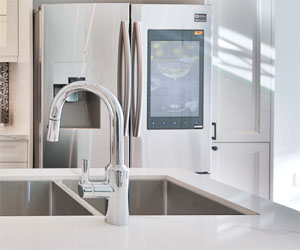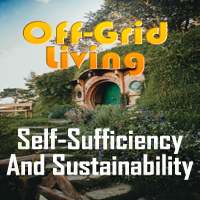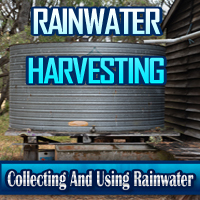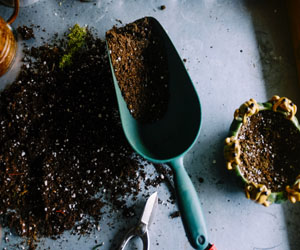


Maximizing Space And Minimizing Clutter

An organized home is not only visually pleasing but also contributes to a more functional and stress-free living environment. With the increasing trend toward smaller living spaces and minimalist lifestyles, effective home storage solutions have become essential. These solutions not only help you make the most of your available space but also reduce clutter and create a sense of order and calm. In this article, we'll explore a variety of home storage solutions to help you maximize space and minimize clutter in your living space.
1. Declutter And Prioritize
Before implementing any storage solutions, it's essential to declutter your home. Go through your belongings and assess what you need and what can be let go. Be ruthless in your decision-making, keeping only what serves a purpose or brings you joy. This step is crucial in creating a fresh canvas for efficient storage.
2. Custom Closet Systems
Custom closet systems are a fantastic way to make the most of your wardrobe space. These systems allow you to tailor your closet's interior to your specific needs, with adjustable shelves, drawers, hanging rods, and more. Custom closets help maximize your storage capacity and keep your clothing and accessories organized.
3. Under-Bed Storage
Utilize the space beneath your bed for storage. Under-bed drawers or storage containers are an excellent way to store items like shoes, clothing, or seasonal bedding. This not only frees up closet space but also keeps your belongings easily accessible.
4. Kitchen Cabinet Organizers
Maximize kitchen storage with cabinet organizers. Pull-out shelves, drawer dividers, and pull-down racks can help you make the most of your kitchen cabinets, keeping your cookware, utensils, and pantry items neatly organized and accessible.
5. Wall-Mounted Shelves
Wall-mounted shelves are a versatile and stylish solution for adding storage space to your home. They can be used in various rooms to display decor, hold books, or store everyday items. By taking advantage of vertical space, you can free up floor space and reduce clutter.
6. Over-Door Storage
Over-door storage solutions are perfect for optimizing small spaces. Hanging racks, hooks, and pockets can be attached to doors to store shoes, accessories, cleaning supplies, or pantry items. These solutions maximize space while keeping items within easy reach.
7. Floating Furniture
Floating furniture, like wall-mounted vanities, desks, and entertainment centers, can make a room feel more spacious by creating the illusion of more floor space. These pieces not only look sleek but also offer storage underneath.
8. Clear Containers And Labels
Clear storage containers are essential for efficient organization. They allow you to see the contents without having to open each container. Use labels to further categorize and identify your belongings, making it easy to find what you need.
9. Multi-Functional Furniture
Invest in furniture that serves multiple purposes. For instance, a sofa that converts into a guest bed, a coffee table with hidden storage, or a dining table that can be folded down when not in use can help you make the most of your living space.
10. Drawer Dividers
Drawer dividers are a simple yet effective storage solution for keeping small items, like utensils, office supplies, or jewelry, organized. They prevent clutter and make it easy to find what you're looking for.
Home storage solutions are key to creating an organized and clutter-free living space. By decluttering, investing in custom storage systems, and utilizing space-saving furniture and accessories, you can maximize the functionality of your home. These solutions not only make your living space more efficient but also contribute to a sense of order and calm, allowing you to fully enjoy and appreciate your surroundings.


Turning Scraps Into Garden Gold
 Improves Soil Structure: Compost acts as a natural soil conditioner, making heavy clay soils lighter and sandy soils more water-retentive. It enhances soil structure and aeration, promoting healthier root development.
Improves Soil Structure: Compost acts as a natural soil conditioner, making heavy clay soils lighter and sandy soils more water-retentive. It enhances soil structure and aeration, promoting healthier root development.
Enhances Water Retention: Compost increases the soil's water-holding capacity, reducing the need for frequent watering in your garden.
Suppresses Plant Diseases: Compost contains beneficial microorganisms that can help prevent soil-borne diseases and reduce the need for chemical pesticides.
Reduces Waste: Composting diverts kitchen and yard waste from landfills, reducing the production of harmful methane gas and lessening the burden on waste disposal systems.
Getting Started With Composting
Select A Composting Location: Choose a suitable spot in your garden or yard for your compost bin or pile. It should be well-drained and accessible for regular turning.
Collect Compostable Materials: Gather kitchen scraps (fruit and vegetable peels, coffee grounds, eggshells), yard waste (leaves, grass clippings, small branches), and other organic materials (paper, cardboard). Avoid meat, dairy, and diseased plants, as these can attract pests and pathogens.
Layer The Materials: Alternate between green (nitrogen-rich) and brown (carbon-rich) materials in your compost pile. This balance provides the right C:N ratio (carbon to nitrogen) for efficient decomposition.
Aerate And Turn: Regularly turn your compost pile with a pitchfork or aeration tool to introduce oxygen and promote decomposition. A well-aerated pile minimizes unpleasant odors and speeds up the composting process.
Maintain Moisture: Keep your compost pile moist but not waterlogged. If it becomes too dry, it won't decompose effectively. If it's too wet, it can become smelly and anaerobic.
Monitor Temperature: A well-working compost pile will generate heat as microorganisms break down the organic matter. This is a sign that your compost is active and efficient.






Nurturing Our Lifeline
 Human Survival: Water is essential for drinking, cooking, and sanitation. Access to clean and safe water is a fundamental human right, yet it remains out of reach for millions around the world.
Human Survival: Water is essential for drinking, cooking, and sanitation. Access to clean and safe water is a fundamental human right, yet it remains out of reach for millions around the world.
Agriculture: Agriculture is the largest consumer of water globally. Crops and livestock rely on water for growth and sustenance, making it indispensable for food production.
Ecosystems: Aquatic ecosystems, from rivers and lakes to oceans, support biodiversity and help maintain the balance of nature. These ecosystems provide essential services such as water purification and flood regulation.
Industrial Processes: Industries depend on water for manufacturing and energy production. Water resources play a pivotal role in supporting economic activities and industrial growth.
Challenges Facing Water Resources
Despite the undeniable importance of water resources, they face several challenges:
Water Scarcity: Many regions worldwide are grappling with water scarcity, where the demand for water surpasses the available supply. This issue is exacerbated by population growth, urbanization, and climate change.
Cleaning Your Home The Eco-Friendly Way
 Reduced Health Risks: Natural cleaning products are less likely to cause skin irritations, allergies, or other health problems associated with chemical exposure.
Reduced Health Risks: Natural cleaning products are less likely to cause skin irritations, allergies, or other health problems associated with chemical exposure.
Eco-Friendly: Natural cleaning solutions are gentle on the environment. They don't contribute to water pollution when washed down drains, and they reduce the production and disposal of harmful chemicals.
Versatility: Natural ingredients like vinegar, baking soda, and lemon juice can be used in a variety of cleaning tasks, reducing the need for multiple specialized cleaning products.
Common Natural Cleaning Solutions
Vinegar: White vinegar is a versatile natural cleaner that can be used to disinfect surfaces, remove stains, and even clean glass.
Baking Soda: Baking soda is an effective abrasive cleaner, perfect for scrubbing surfaces, deodorizing, and eliminating stains.
Lemon Juice: Lemon juice is a natural disinfectant that also leaves behind a fresh, citrus scent. It's great for cutting through grease and grime.
Essential Oils: Many essential oils, such as tea tree oil, lavender oil, and eucalyptus oil, have natural cleaning and disinfecting properties. They can be added to homemade cleaning solutions for added fragrance and antibacterial power.
Olive Oil: Olive oil can be used to clean and polish wooden surfaces and stainless steel appliances.
Methods Of Using Natural Cleaning Solutions
All-Purpose Cleaner: Create a basic all-purpose cleaner by mixing equal parts water and white vinegar. Add a few drops of your favorite essential oil for a pleasant scent.
The Dawn Of Intelligent Living
 Smart Living At Its Best
Smart Living At Its Best
Future-ready homes are characterized by their integration of cutting-edge technology, automation, and intelligent systems. These homes use the power of the Internet of Things (IoT) to create an interconnected ecosystem, where devices and appliances can communicate and work together seamlessly. From lighting and climate control to security and entertainment, every aspect of daily life is optimized for convenience and efficiency.
Energy Efficiency And Sustainability
A central focus of future-ready homes is sustainability. These homes incorporate energy-efficient solutions that not only reduce utility costs but also minimize environmental impact. Solar panels, smart lighting, and advanced insulation systems are just a few examples. Future-ready homes can harvest and store energy, monitor usage, and make real-time adjustments to conserve resources.
Security And Peace Of Mind
Security is paramount in future-ready homes. Advanced surveillance systems with high-resolution cameras, motion detectors, and smart locks provide unparalleled protection for homeowners. These systems can be monitored and controlled remotely through smartphones, giving homeowners peace of mind and the ability to respond swiftly to any security concerns.
Customization And Personalization
Future-ready homes are designed to adapt to the needs and preferences of their inhabitants. For example, intelligent thermostats learn your temperature preferences and create customized schedules. Personal virtual assistants, such as Amazon's Alexa or Google Assistant, respond to voice commands to control various functions within the home, including lighting, music, and climate control. This level of personalization creates a truly unique living experience.
Cultivating More Than Just Plants
 Mental Health Benefits
Mental Health Benefits
Mindfulness: Gardening encourages mindfulness, as it requires you to be present in the moment. The act of nurturing plants allows you to disconnect from daily stressors.
Improved Mood: The visual appeal of a well-tended garden can bring about a sense of achievement and happiness. The act of watching plants grow and bloom is therapeutic.
Mental Focus: Gardening tasks, such as planning and maintaining your garden, require mental focus and problem-solving skills, which can help sharpen your cognitive abilities.
Environmental Benefits
Conservation: Home gardens can promote biodiversity by attracting pollinators and beneficial insects. This contributes to the health of local ecosystems.
Sustainability: Growing your food reduces your carbon footprint by decreasing the need for transportation and packaging of commercial produce.
Education: Gardening offers opportunities to learn about ecosystems, sustainable practices, and the importance of protecting the environment.
Social And Community Benefits
Community Building: Gardening often brings people together. Community gardens create a sense of camaraderie and encourage social interaction.
Sharing: Gardeners often share their surplus produce with friends, family, and the community, fostering a sense of goodwill and generosity.
Teaching And Learning: Gardening can be a great way to pass on knowledge and skills to the next generation, strengthening family bonds and community relationships.